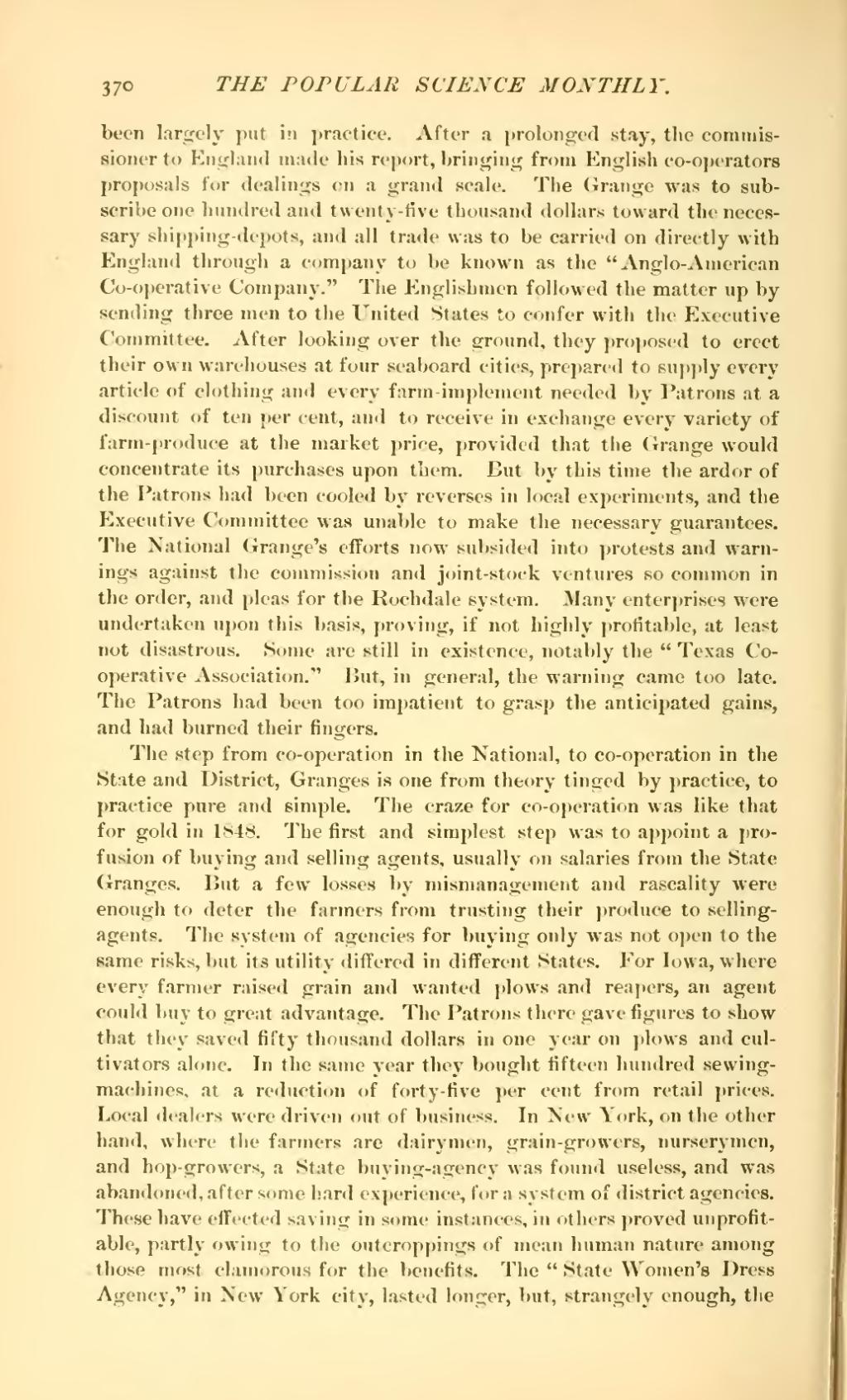been largely put in practice. After a prolonged stay, the commissioner
to England made his report, bringing from English co-operators
proposals for dealings on a grand scale. The Grange was to
subscribe one hundred and twenty-live thousand dollars toward the necessary
shipping-depots, and all trade was to be carried on directly with
England through a company to be known as the “Anglo-American
Co-operative Company.” The Englishmen followed the matter up by
sending three men to the United States to confer with the Executive
Committee. After looking over the ground, they proposed to erect
their own warehouses at four seaboard cities, prepared to supply every
article of clothing and every farm-implement needed by Patrons at a
discount of ten per cent, and to receive in exchange every variety of
farm-produce at the market price, provided that the Grange would
concentrate its purchases upon them. But by this time the ardor of
the Patrons had been cooled by reverses in local experiments, and the
Executive Committee was unable to make the necessary guarantees.
The National Grange's efforts now subsided into protests and warnings
against the commission and joint-stock ventures so common in
the order, and pleas for the Rochdale system. Many enterprises were
undertaken upon this basis, proving, if not highly profitable, at least
not disastrous. Some are still in existence, notably the “Texas
Co-operative Association.” But, in general, the warning came too late.
The Patrons had been too impatient to grasp the anticipated gains,
and had burned their fingers.
The step from co-operation in the National, to co-operation in the State and District, Granges is one from theory tinged by practice, to practice pure and simple. The craze for co-operation was like that for gold in 1848. The first and simplest step was to appoint a profusion of buying and selling agents, usually on salaries from the State Granges. But a few losses by mismanagement and rascality were enough to deter the farmers from trusting their produce to selling-agents. The system of agencies for buying only was not open to the same risks, but its utility differed in different States. For Iowa, where every farmer raised grain and wanted plows and reapers, an agent could buy to great advantage. The Patrons there gave figures to show that they saved fifty thousand dollars in one year on plows and cultivators alone. In the same year they bought fifteen hundred sewing-machines, at a reduction of forty-five per cent from retail prices. Local dealers were driven out of business. In New York, on the other hand, where the farmers are dairymen, grain-growers, nurserymen, and hop-growers, a State buying-agency was found useless, and was abandoned, after some hard experience, for a system of district agencies. These have effected saving in some instances, in others proved unprofitable, partly owing to the outcroppings of mean human nature among those most clamorous for the benefits. The “State Women's Dress Agency,” in New York city, lasted longer, but, strangely enough, the

